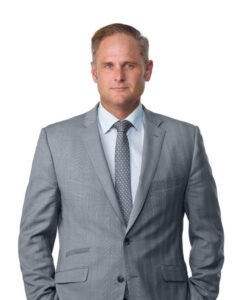The Court:
County Court of Victoria
The Charges
The Allegations
The case involved two co-offenders (SI and BB) with multiple charges of Obtaining a Financial Advantage by Deception and Attempting to Obtain a Financial Advantage by Deception. SI and BB appealed against their convictions for the following charges.
- SI: 11 charges of obtaining a financial advantage by deception and one charge of attempting to obtain a financial advantage by deception. SI was sentenced to 11 years’ imprisonment, with a non-parole period of 7 years.
- BB: 2 charges of obtaining a financial advantage by deception and one charge of attempting to obtain a financial advantage by deception. BB was sentenced to 6 years and 5 months’ imprisonment, with a non-parole period of 4 years.
The charges stemmed from fraudulent representations made to financial institutions to secure lending facilities and hire purchase finance for the Viking Group of Companies, where SI was the CEO and BB was the general manager. Both applicants sought leave to appeal against their convictions, with SI also seeking leave to appeal against the sentence imposed on the attempt charge.
The charges against SI and BB were divided into two categories: finance charges related to obtaining financial lending facilities and equipment charges related to obtaining hire purchase finance for equipment purchased by the Viking Group. The finance charges were based on a joint criminal enterprise involving SI, BB, and BB’s wife.
SI was alleged to have committed the equipment charges himself, although BB’s wife was heavily involved in the commission of those offences. The Viking Group experienced chronic cash flow shortfalls, leading to multiple applications for increased financial facilities from the Commonwealth Bank of Australia (CBA) and Westpac Banking Corporation, based on falsified accounting documents and false representations.
At Court
The court was satisfied that the evidence presented was sufficient to convict the applicants for their involvement in a joint criminal enterprise aimed at deceiving financial institutions and obtaining a financial advantage. They noted that the attempt to have Westpac refinance Viking’s facilities involved a substantial sum, namely $53 million. Had it succeeded, this would have been a major fraud.
The Judges noted that it was open to the jury to be satisfied that SI and BB knew of the false statements in the financial documents provided to the bank. They found that SI and BB were the driving forces behind the Group’s expansion, which created the cash flow difficulties that prompted repeated requests to the bank for increased assistance. The Judges rejected the submission that what occurred was merely preparatory. On the contrary, Viking had taken all the necessary steps to have its application considered. The appeal was dismissed.
The court found that SI and BB were both involved in the financial fraud perpetrated within the Viking Group. The court was satisfied that SI was convicted on the basis that he was a party to, and participated in, a joint criminal enterprise. Similarly, the court was satisfied that BB knowingly agreed to become a party to an enterprise involving the frauds and that he participated in those frauds.
As SI was the CEO of the Group, his culpability was high. As the Judge said in sentencing him (at [26]):
In the course of submissions, it was common ground that the roles and culpability of you, SI, and of BB’s wife, in the commission of both the finance offences and the equipment offences were more or less equal. In general, I agree with that approach. You, SI, as the effective owner of the Viking Group, were the principal beneficiary of the frauds. The offences were each committed in order to sustain the financial viability of the Viking Group of companies owned by you. In addition, the ongoing financial success of those companies enabled you to engage in a rather extravagant lifestyle in the manner described in the evidence of [a witness]. As the effective owner, and chief executive officer, of the companies, the offences would not have been committed without your approval and participation.
The Outcome
The Court of Appeal upheld the convictions of SI and BB on the finance charges and equipment charges, and leave to appeal was refused.


























